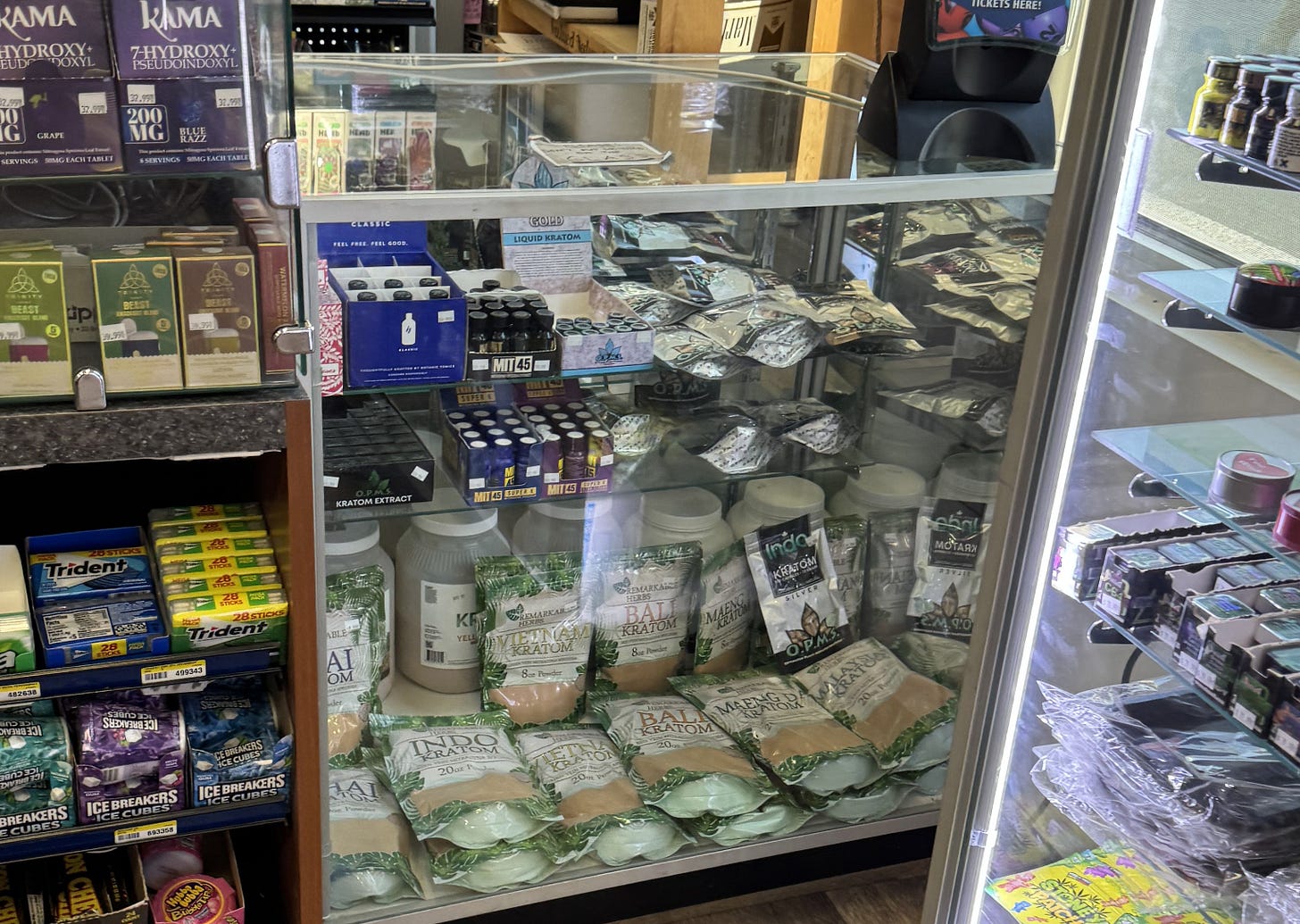BOSTON/SOUTH SHORE — The legal status of Kratom (Mitragyna speciosa) in Massachusetts is currently defined by a profound policy vacuum at the state level, forcing local Boards of Health across the Commonwealth to create an inconsistent patchwork of regulations. For South Shore policy makers, this dynamic presents immediate challenges, as municipal bans enacted nearby threaten to displace sales and public health risks into neighboring, unregulated towns

Kratom is an herbal substance derived from a tree native to Southeast Asia. It is consumed in various forms, including capsules, tablets, extracts, and teas. Depending on the amount taken, Kratom is known to exhibit both stimulant and sedative effects. It contains two major psychoactive compounds: mitragynine and 7-hydroxymitragynine (7-OH).
Although the U.S. Food and Drug Administration (FDA) has not listed Kratom as a controlled substance, public health officials raise alarms over its potential dangers. Risks associated with use include dependence and withdrawal symptoms similar to those of opioids. Other potential side effects include nausea, aggression, hallucinations, trouble breathing, liver damage, and death. Regular use has also been linked to seizures and psychosis. Already, Dracut, MA, has experienced one death attributed to Kratom.
The State House Logjam: Ban vs. Regulation
Kratom remains legal statewide as of October 2025, but the 194th General Court (2025-2026) is considering two fundamentally opposing legislative paths.
1. The Path to Prohibition Several bills aim to outlaw the substance entirely.
• S.1558: Sponsored by Senator Edward J. Kennedy, this bill seeks a complete statewide ban on the sale of Kratom. It was referred to the Joint Committee on Public Health and held a major public hearing on September 10, 2025.
• H.1680: This aggressive proposal, filed by Representative Rodney Elliott, seeks to classify Kratom as a Class A controlled substance (alongside heroin and fentanyl), making possession and distribution criminal offenses.
2. The Path to Regulation (KCPA Model) In opposition to a ban, bills like H.2454 and S.1609 (filed by Senator Jacob R. Oliveira) propose a comprehensive regulatory framework modeled after the Kratom Consumer Protection Act. This approach treats Kratom as a commercial product requiring strict safety and purity standards.
Key features of this regulatory path include:
• Age Restriction: Prohibiting sales to individuals under 18.
• Safety Limits: Mandating proper labeling and prohibiting products that are adulterated or contain controlled substances.
• 7-OH Limits: Critically, the bill would ban any product where the level of 7-hydroxymitragynine (7-OH) exceeds 2% of the total alkaloid composition, and would also prohibit synthetic alkaloids.
The debate is increasingly coalescing around 7-OH, which advocates argue is the “designer opioid” version that poses the greatest public health risk, particularly when concentrated or synthesized.
South Shore Municipal Response: A Patchwork of Rules
In the absence of clear, uniform state legislation, local Boards of Health are exercising their authority to enact “reasonable health regulations”. This has led to inconsistent rules throughout the South Shore region stretching from Quincy to Plymouth.
Local Action Enacted or Imminent:
Canton (Norfolk County): Ban Enacted
Complete prohibition on the manufacturing, sale, and distribution of Kratom, effective September 2025. Penalties escalate from $1,000 for a first offense up to $5,000 for a third offense, with the right to revoke other business permits (like tobacco licenses).
Kingston (Plymouth County): Under Consideration
The Board of Health is actively exploring Kratom regulations. A public hearing on proposed regulations was scheduled for October 6, 2025. Local officials, including State Representative Kathleen LaNatra and Kingston Police Chief Brian Holmes, raised urgent concerns in July 2025 about the lack of age restrictions and proper labeling, and the availability of Kratom to minors in the region.
North Attleboro (Bristol County): Restricted Sale
Regulations effective December 31, 2023, requiring purchasers to be 21 years or older and restricting sales exclusively to adult retail tobacco stores.
Action Taken, Discussion Tabled:
• Whitman (Plymouth County): The Whitman Board of Health discussed Kratom in early 2025, noting concerns about unregulated capsules sold in town, which officials suspected might contain high levels of 7-OH. Citing limited departmental resources and the risk of litigation in a small town with a minuscule budget, the Board ultimately voted to table further discussion. They expressed a preference that the issue be handled at the state level or taken up by residents through a Town Meeting ballot question.
Status of Anchor Cities:
A significant finding is the absence of documented public action on Kratom regulation in the region’s anchor cities and towns: Quincy, Brockton, Weymouth, and Plymouth. Other key South Shore towns such as Braintree, Randolph, and Middleborough also show no known local action.
Outlook for Policy Makers
The decision by municipalities like Canton to enact a complete ban, and Kingston to formally explore restrictions, creates regulatory “islands” that risk driving consumer demand into adjacent, unregulated areas.
Policy makers in unregulated communities face a strategic choice: adopt the stringent outright ban model (like Canton and Dracut), or pursue the more nuanced approach (like Northampton, which bans only synthetically derived products) that aligns with the emerging scientific focus on high-potency 7-OH. Given the legal and administrative resources required to enforce regulations locally, regional collaboration among Boards of Health may prove to be the most effective way to protect public health while awaiting a definitive statewide resolution.
Sources for this article include MA Legislative Hearings, the Plympton-Halifax Express, records of local Board of Health meetings, the Lowell Sun, policy analysis from Large Language Models, and the official webpages of the Town’s of Kingston, Canton, and North Attleborough.











